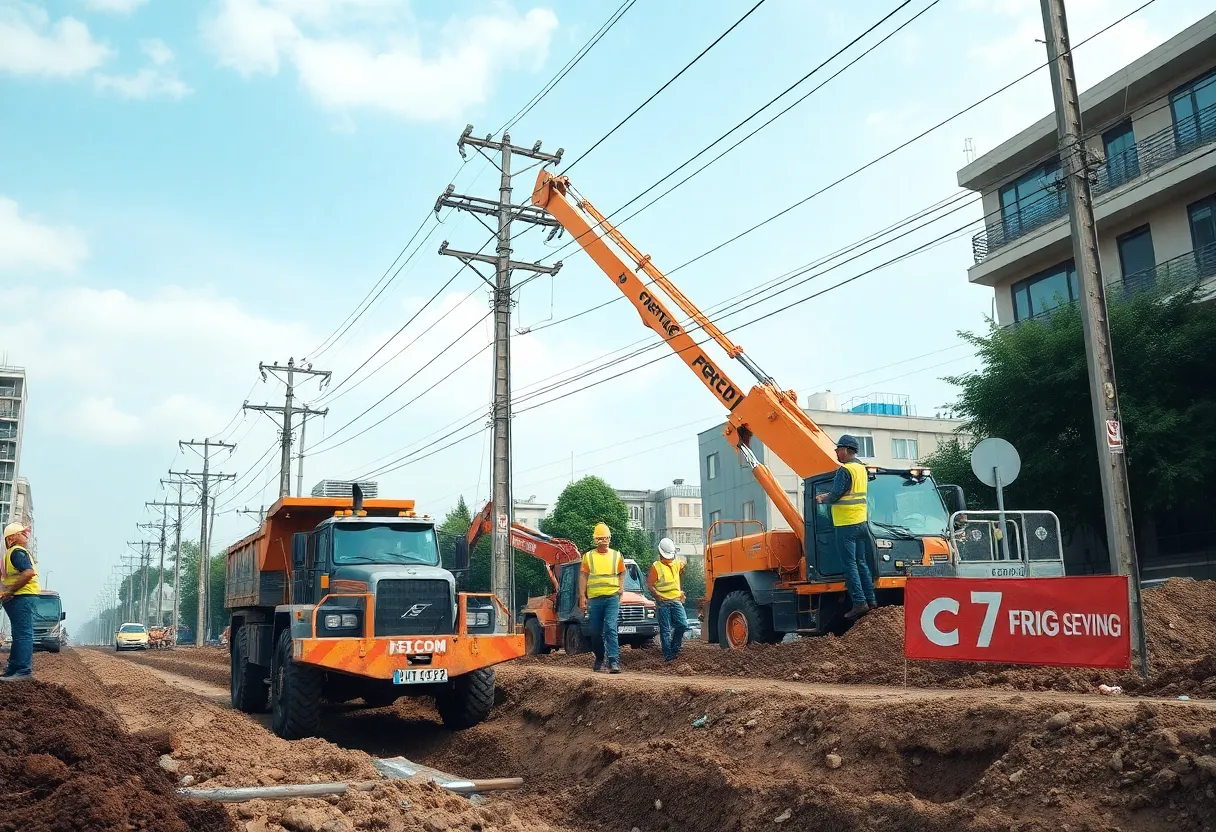News Summary
Vietnam is witnessing significant expansion in its Building Management System (BMS) market, driven by rapid infrastructure development and a focus on energy efficiency. With an increase in green buildings and government initiatives promoting sustainability, BMS solutions are gaining traction. The market is projected to grow at a robust Compound Annual Growth Rate of 16.3%, fueled by urbanization and smart city programs. Major developments and corporate commitments to energy efficiency further enhance the landscape, making the BMS market a key player in Vietnam’s economic growth and sustainability endeavors.
Vietnam’s Building Management System Market Set for Rapid Expansion
The Building Management System (BMS) market in Vietnam is on the verge of significant growth, driven by ongoing infrastructure development and a strong commitment to sustainability within the real estate sector. As one of the fastest-growing economies in Southeast Asia, Vietnam is witnessing a surge in demand for advanced BMS solutions that emphasize energy efficiency and reduce environmental impacts.
Infrastructure and Sustainability Fueling Growth
The BMS market revenues in Vietnam are projected to grow at a Compound Annual Growth Rate (CAGR) of 16.3% from 2024 to 2030. This growth is primarily attributed to rapid infrastructure development, particularly in urban areas, along with an expanding industrial and commercial sector. The number of green buildings in the country has seen a notable increase, rising from 276 in 2022 to 396 in 2023. This trend underscores the growing emphasis on sustainable building practices across the nation.
Government Initiatives and Energy Efficiency
Key government initiatives such as the Vietnam Energy Efficiency Programme (VNEEP 3), which runs from 2019 to 2030, aim to achieve a reduction in national energy consumption by 8-10%. Furthermore, the Vietnamese government is dedicated to reaching net-zero emissions by 2050, reinforcing the importance of implementing green building practices. Certification systems like LEED, LOTUS, and Green Mark are increasingly encouraging sustainable practices within the BMS framework, further stimulating market demand.
Technological Advancements in Building Management
The growing adoption of Industry 4.0 technologies is expected to propel growth in managed services within the BMS sector. As smart buildings gain traction, there is an increasing interest in integrated systems that allow greater control over energy usage. Canon Vietnam, for instance, has made strides in energy efficiency, reducing its total electricity consumption by 11% from 85,845 MWh in 2019 to 76,054 MWh in 2023, focusing on integrating smart BMS connected to mobile devices for real-time monitoring.
Commercial Sector Expansion Driving Demand
The commercial sector is anticipated to be the fastest-growing segment of Vietnam’s BMS market, driven by burgeoning projects such as the construction of eight new airports by 2030. Major ongoing developments, including the $2 billion Padaran Mui Dinh project and significant office developments in Ho Chi Minh City and Hanoi, are vital contributors to this trend. Growth in facility management services, particularly in the hospitality and commercial sectors, is also expected to accelerate, given the increasing consumer demand for modern amenities.
Impact of Smart Technologies on Energy Management
Building automation and energy management systems are projected to enhance energy efficiency by 25-67%, resulting in considerable operational cost savings and improving overall workplace wellbeing. A notable case in point is the National Innovation Center (NIC) in Hoa Lac Hi-Tech Park, where ABB is providing energy-efficient solutions that contribute significantly to operational cost savings and sustainability objectives. The NIC is prioritizing sectors like smart factories and smart cities, aligning closely with Vietnam’s ambitious net-zero goals.
Future Outlook for Vietnam’s BMS Market
As Vietnam continues to urbanize and develop smart city initiatives, the demand for advanced BMS solutions is expected to rise. The shift towards sustainability in building management, coupled with supportive government policies and an expanding economy, positions Vietnam’s BMS market for rapid growth in the years ahead. Stakeholders in the real estate sector, as well as technology providers, must remain vigilant to capitalize on these emerging opportunities within this evolving market landscape.
Deeper Dive: News & Info About This Topic
Additional Resources
- Vietnam Building Management System Competitive Landscape Report 2025
- Wikipedia: Vietnam
- Canon Vietnam Leverages Solar and Smart Energy Innovations
- Google Search: Vietnam energy efficiency
- Building a Wealth Management Future for Vietnam
- Google Scholar: Vietnam Building Management System
- Vietnam’s National Innovation Center Runs on ABB Smart Building Technology
- Encyclopedia Britannica: Vietnam infrastructure
- Emerging Trends in Vietnam’s Building Management Systems
- Google News: Vietnam building management system
Author: Construction NY News
The NEW YORK STAFF WRITER represents the experienced team at constructionnynews.com, your go-to source for actionable local news and information in New York and beyond. Specializing in "news you can use," we cover essential topics like product reviews for personal and business needs, local business directories, politics, real estate trends, neighborhood insights, and state news affecting the area—with deep expertise drawn from years of dedicated reporting and strong community input, including local press releases and business updates. We deliver top reporting on high-value events such as the New York Build Expo, infrastructure breakthroughs, and cutting-edge construction technology showcases. Our coverage extends to key organizations like the Associated General Contractors of New York State and the Building Trades Employers' Association, plus leading businesses in construction and real estate that power the local economy such as Turner Construction Company and CMiC Global. As part of the broader network, including constructioncanews.com, constructiontxnews.com, and constructionflnews.com, we provide comprehensive, credible insights into the dynamic construction landscape across multiple states.





